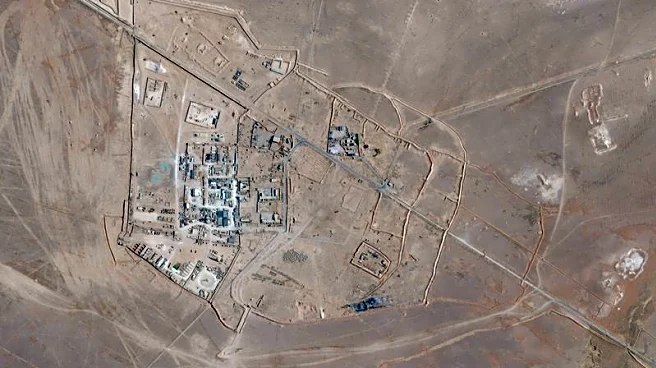What's Happening?
The Pentagon has removed Lt. Gen. Jeffrey Kruse from his position as head of the U.S. Defense Intelligence Agency (DIA). This decision follows a contentious period marked by a disagreement over the assessment of U.S. military strikes on Iran. The DIA had previously reported that the attacks only temporarily set back Iran's nuclear program, a conclusion that was publicly criticized by President Trump and labeled as 'flat out wrong' by the White House. The Pentagon has not provided a specific reason for Kruse's dismissal. Additionally, two other senior military commanders have been ousted, including the chief of U.S. Naval reserves and the commander of Naval Special Warfare Command. This move is part of a broader pattern of personnel changes within the Pentagon, as noted by the recent firing of other high-ranking military officials.
Why It's Important?
The removal of Lt. Gen. Kruse underscores ongoing tensions between the Pentagon and the White House regarding intelligence assessments and military strategy. The dismissal may have significant implications for U.S. military operations and intelligence gathering, particularly in relation to Iran. It highlights a potential shift in how intelligence is valued and utilized within the current administration, raising concerns about the independence of military intelligence. The decision could affect morale and operational effectiveness within the DIA and other military branches, as it may be perceived as prioritizing political loyalty over objective analysis. This development also signals potential instability within the U.S. defense leadership, which could impact strategic decision-making and international relations.
What's Next?
The Pentagon's decision to remove Kruse and other senior commanders may lead to further scrutiny from lawmakers and defense analysts. There could be calls for greater transparency regarding the criteria for these dismissals and the implications for U.S. military strategy. The intelligence community may face increased pressure to align its assessments with the administration's views, potentially affecting the objectivity of future reports. Additionally, the changes in leadership could prompt a reevaluation of current military strategies, particularly concerning Iran, and influence future policy decisions. Stakeholders, including Congress and defense experts, may seek to understand the broader impact of these personnel changes on national security.










